Google recently announced that it may soon be adding structured data as a ranking factor in its search algorithm. This announcement didn't surprise us and it shouldn't surprise anyone else once they know how powerful structured data can be.
Unfortunately, we only rarely find an apartment community using structured data correctly on their apartment website. So in today's post we want to offer a fairly comprehensive look at how to use structured data for apartment websites and how it fits into a broader SEO strategy for your community.
What is structured data?
When a search engine crawls your website, it's trying to learn about the site so that it can know how to rank the site and what search engine users might find its content valuable. So it's trying to answer questions like these:
- What is this site about?
- Is this site about something with a highly localized intent? (EX: A site like Grantland.com is not going to have strong local intent; the website for a local restaurant here in Lincoln will have strong local intent.
- If the site has local intent, is the relevant contact information present and trustworthy?
- Is the website as a whole trustworthy?
- Is the website easy for human users to use?
Search engines need to have ways of testing all these different questions and finding answers to them.
To be sure, search engines can always crawl the body text of your website and learn a fair amount about your site. But there is a ton of body text on many sites so that isn't necessarily a great way to learn about what is most important on your site. To do that, they need other things to look at and evaluate.
Traditionally, these other factors might include things like the domain name and title tag to tell the search engine a bit about the site's purpose and whether or not it has local intent. Individual pages on the site can also tell Google a bit about the site and its purpose. Meanwhile, things like page load time can tell them a bit about the site's usefulness for human beings, and comparing the data on the site to data from elsewhere on the web can say quite a lot about its trustworthiness.
If, for example, the site is lifting content from a newspaper without attribution, search engines can look at that and say "this site seems to be scraping content off another website so the people running it probably aren't trustworthy. Therefore, I am not going to rank this site as highly. For local search data, the search engine could say "OK, I see that this page is purportedly about this business, but the address on this page is not the same as the address I'm seeing in these three local directory listings, so that makes me think this site isn't reliable."
Structured data is simply an attempt to streamline this entire process for search engines. By using a bit of code that search engines can see on your site, you can tell search engines all sorts of things about your site. You can tell them what your site is about, if the site is connected to other pages online (including social media profiles), where your business is located, who owns the copyright on your images or video, who published your site, and a host of other things as well.
With structured data, search engines don't have to try and piece together a picture of your site based on sometimes-helpful-sometimes-not clues like title tags, header text, domain name, and so on. Instead, they can simply crawl the site, look for the structured data code, and essentially go down a list of questions for your site which can all be answered by the structured data. Essentially, it streamlines the work of assessing your site for search engines. Given how powerful it can be, then, it is no surprise at all that Google would be thinking about making structured data a ranking factor.
How can apartment communities use structured data?
Structured data uses an agreed-upon standard for how to build it into your site which is run through a site called schema.org. On schema.org, you can search for apartments to access the structured data markup specifically designed for apartment websites. (Yes, there really is specific structured data for apartment websites. That's how ubiquitous structured data has become.)
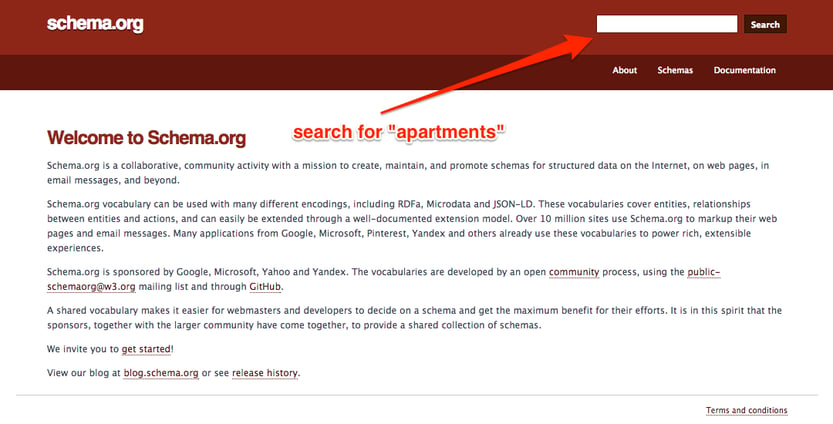 Once you have done that, you can select the "apartment complex" result:
Once you have done that, you can select the "apartment complex" result:
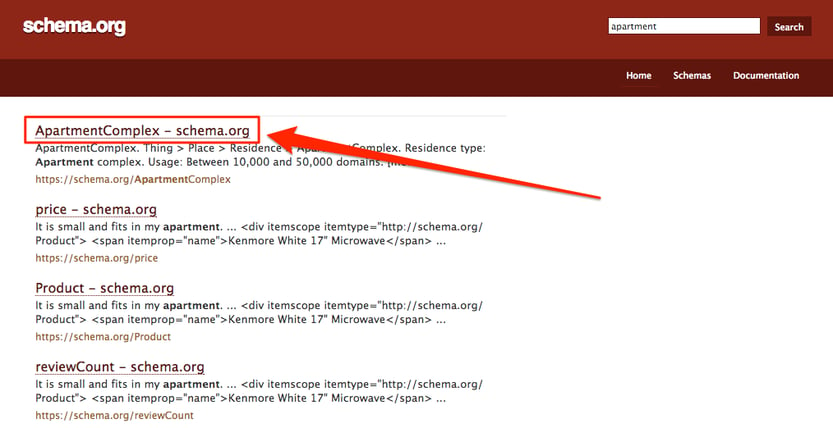
Here you can see all the options for building structured data into your website. Here is what the page should look like:
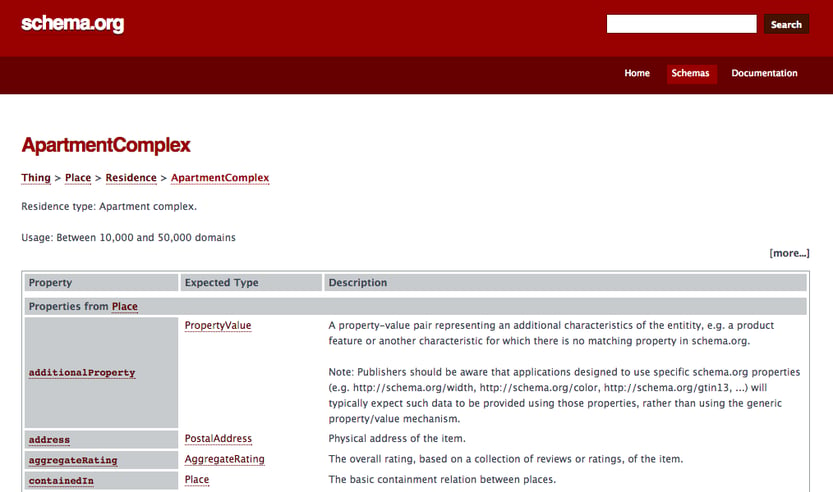
One of the best things you can do in structured data is identify other sites online that are also part of your community's online marketing strategy. So you can identify your community Google My Business page or Facebook page as also being connected to your website. This builds the sort of strong interconnectedness between multiple domains that helps to build trust with search engines.
In addition to structured data for your apartment website, you can also build structured data into the images on your site. Search "image" on schema.org and select "ImageObject."
On images, you can tag things like the copyright holder, the location of the image, and keywords that are relevant to the image.
By adding markup to your images as well as your overall website you can make it easier for search engines to identify what the site is about and even what floorplan a given image goes with.
A further point is that in the structured data you can identify the copyright holder of an image and the date the image was first uploaded and displayed on your website. This can be helpful if you own the copyright on your images but those images are somehow being used illegally by another website.
How do you implement structured data?
The best way to do this is to speak with your web developer. He'll be able to tell you how to go about implementing structured data markup into the code on your website.
How can I test whether or not I have implemented structured data correctly?
Google provides a free tool to test structured data markup. You can find it here. To use it, simply follow the directions in the screen captures below:
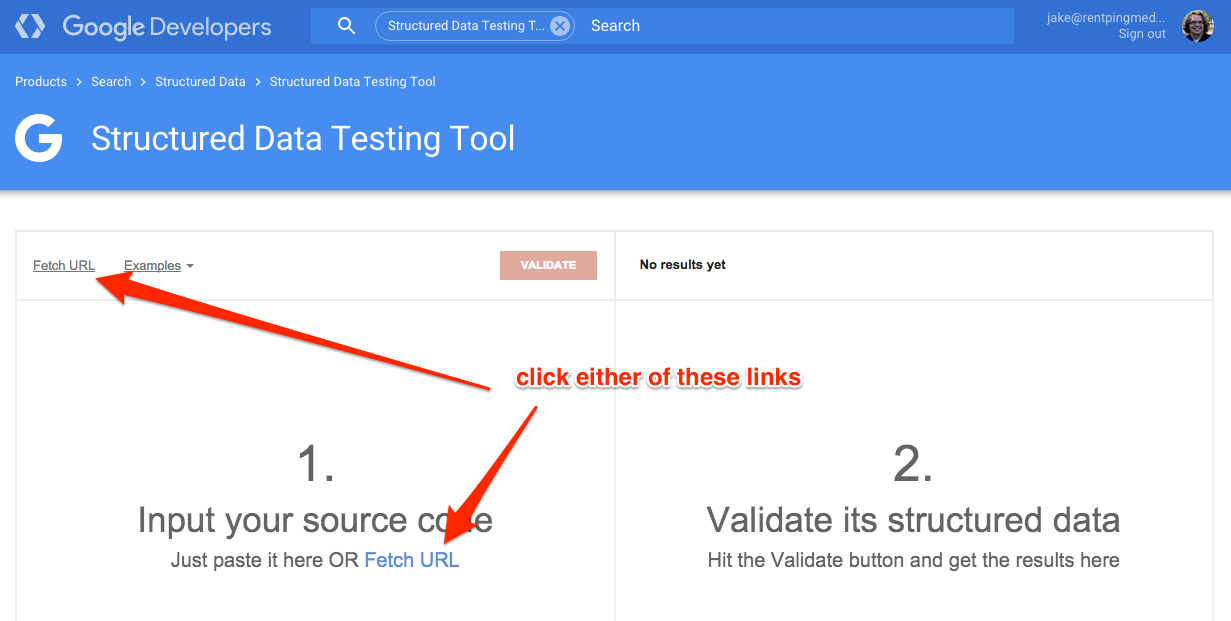
Then:
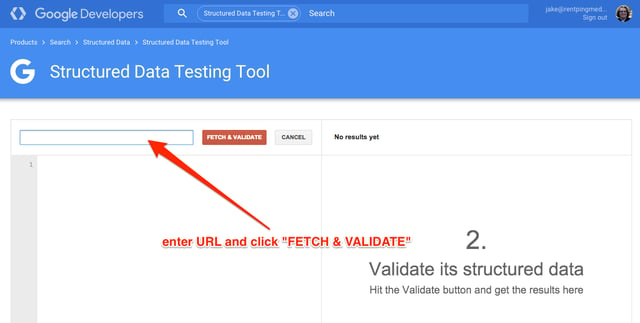 Google will then run a test on your site that will tell you what structured data you have built in already and what is missing.
Google will then run a test on your site that will tell you what structured data you have built in already and what is missing.
Conclusion
If you have additional questions about structured data, feel free to ask in the comments below or sign up for a free marketing consultation to learn more.

